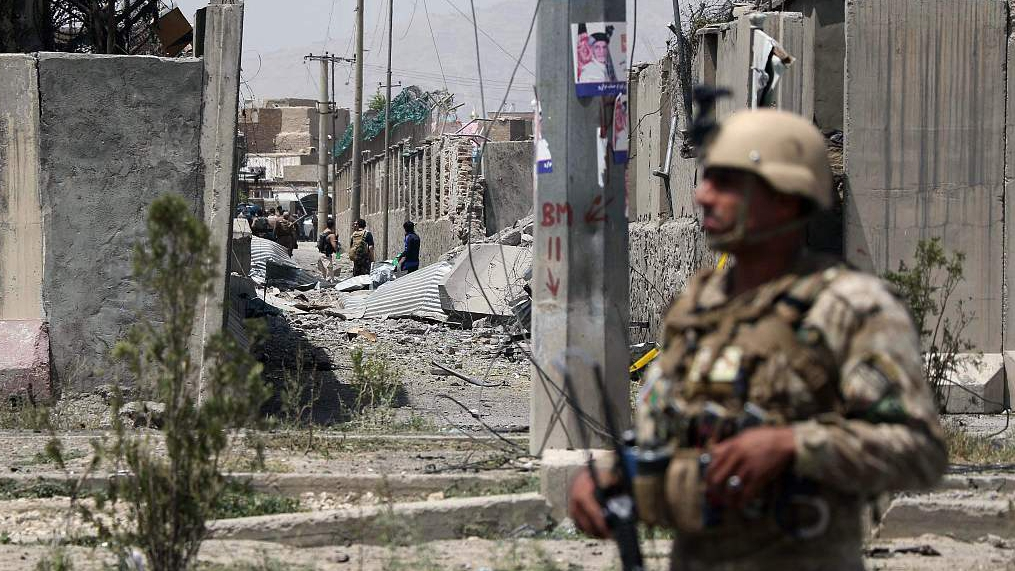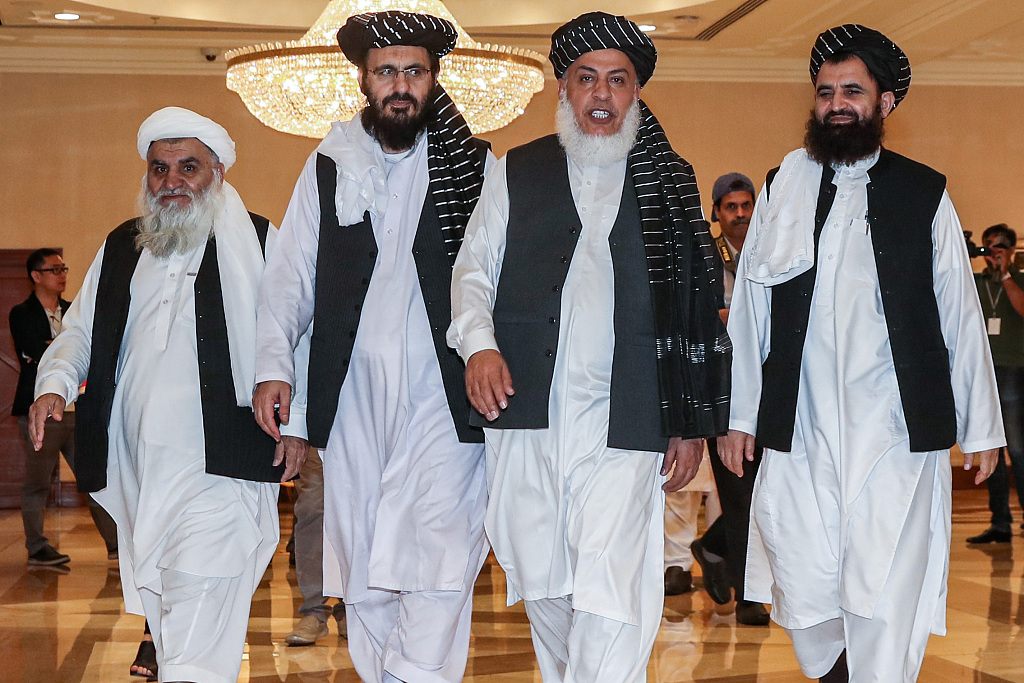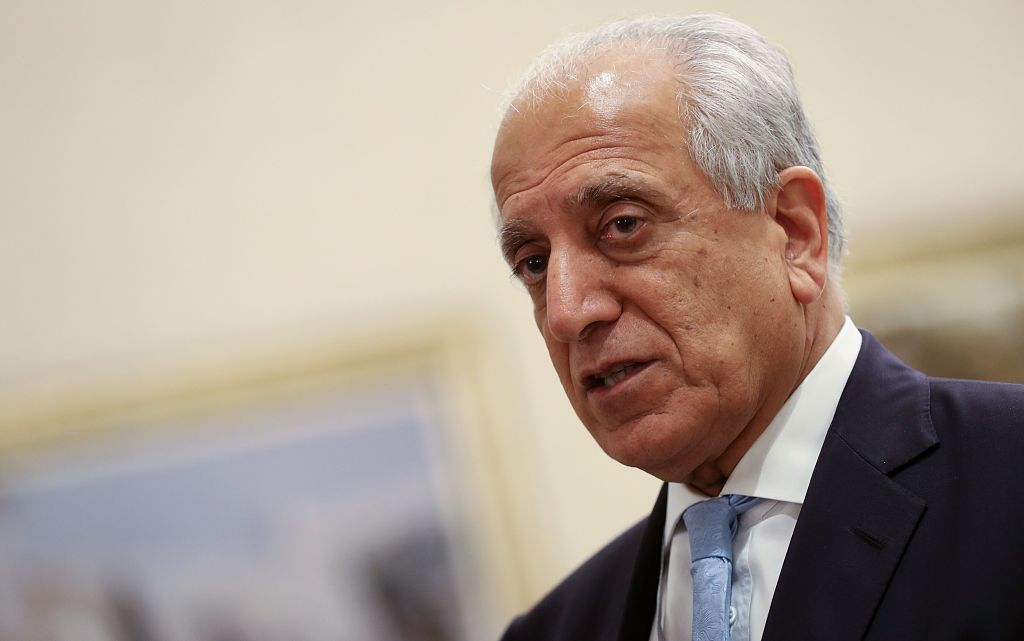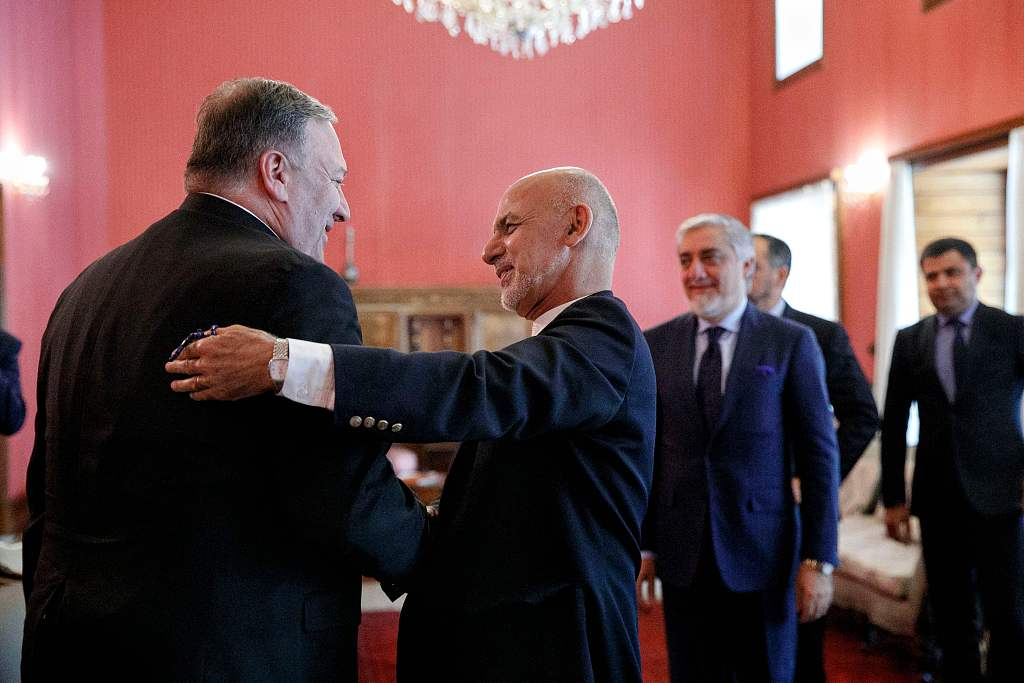

Taliban militants have stormed the capital of Baghlan province in northern Afghanistan, a day after they failed to capture the capital of neighboring Kunduz province.
The attacks came as talks between the United States and the Taliban take place in Qatar.
Despite the continued unrest, a top American official said the sides were close to a deal that would open the way for peace in the war-torn country.
But only hours after Zalmay Khalilzad, the Afghan-born U.S. diplomat overseeing negotiations for Washington, spoke, the Taliban attacked a second Afghan city, Puli Khumri, the capital of Baghlan province, an official said.

Mohammad Nabi Omari (L2), a Taliban member formerly held by the U.S. at Guantanamo Bay and reportedly released in 2014 in a prisoner exchange, Taliban negotiator Abbas Stanikzai (R2), and former Taliban intelligence deputy Mawlawi Abdul Haq Wasiq (R1) walk with another Taliban member during the second day of Intra Afghan Dialogue talks in the Qatari capital Doha, July 8, 2019. /VCG Photo
Khalilzad said he warned the Taliban during talks in Qatar that "violence like this must stop." However, he appeared determined to continue with the deal that plans the withdrawal of 14,000 remaining U.S. troops in exchange for Taliban guarantees that Afghanistan will not be used as a launchpad for global attacks.
"We are at the threshold of an agreement that will reduce violence and open the door for Afghans to sit together to negotiate an honourable and sustainable peace and a unified, sovereign Afghanistan that does not threaten the United States, its allies or any other country," he said in a Twitter post.
Khalilzad gave no details of the deal, which is expected to see thousands of U.S. troops withdrawn from Afghanistan in exchange for guarantees by the Taliban not to allow the country to be used as a base for militant attacks abroad.
"We will now discuss these developments with our own leadership, while Zalmay Khalilzad is supposed to go to Kabul and inform the Afghan leadership about the decisions made in the peace talks,” a senior Taliban leader said.

U.S. Special Representative for Afghanistan Reconciliation Zalmay Khalilzad attends the Intra Afghan Dialogue talks in the Qatari capital Doha, July 8, 2019. /VCG Photo
The agreement would not end the fighting between the Taliban and Afghan security forces, but would allow the start of "intra-Afghan" peace talks, expected to be held in the Norwegian capital of Oslo.
However, it was not clear whether the Taliban would agree to talk directly with the western-backed government of President Ashraf Ghani, which they consider an illegitimate foreign-imposed regime.
Some Taliban officials have said they would agree to talk to Afghan officials only in a private capacity, not as representatives of the state, and they remain opposed to presidential elections scheduled for September 28.
It was also unclear whether the agreement would cover the withdrawal of all 14,500 U.S. troops or how long a pullout would take.

U.S. Secretary of State Mike Pompeo (L) is greeted by Afghan President Ashraf Ghani at the Presidential Palace in Kabul, Afghanistan, June 25, 2019. /VCG Photo
More than 20,000 foreign troops are in the country, most serving as part of a Nato-led mission to train and assist Afghan forces. Thousands of U.S. troops are also engaged in a separate counter-terrorism mission fighting militant groups such as ISIL and al-Qaida.
Suicide bombings and combat operations have continued throughout the talks and the fighting in Kunduz underlined the vulnerability of large parts of Afghanistan, where the Taliban control more territory than at any time since being overthrown by a U.S.-led campaign in 2001.
Taliban fighters, who control large parts of the surrounding countryside, stormed the city early on Saturday, and seized large areas, including a hospital, before Afghan security forces backed by airstrikes pushed them back.
(With input from Xinhua, Reuters)

Copyright © 2018 CGTN. Beijing ICP prepared NO.16065310-3
Copyright © 2018 CGTN. Beijing ICP prepared NO.16065310-3